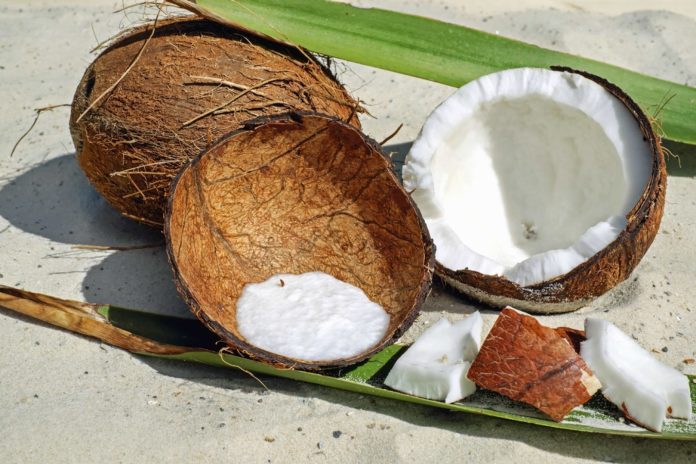The insect repellents work better than some more commonly used options
Compounds derived from coconut oil are better than DEET at repelling blood-sucking insects, according to a new U.S. Department of Agriculture study.
What is DEET?
- N,N-Diethyl-meta-toluamide, also called DEET or diethyltoluamide, is the most common active ingredient found in insect repellents
- It is a yellowish oil supposed to be applied to the skin or to clothing and provides protection against ticks, mosquitoes, fleas, leeches and many biting insects
- Also known as ‘bug juice’, the application solution for DEET was composed of 75 per cent DEET and ethanol
For more than 60 years, DEET has been considered the gold standard in insect repellents — the most effective and long-lasting available commercially, said researchers from US Department of Agriculture (USDA).
Coconut oil derivatives were effective against biting flies and bed bugs for two weeks and had lasting action against ticks for at least one week in laboratory tests
Using repellents is one of the most efficient ways to prevent disease transmission and discomfort associated with insect bites.
For more than 60 years, DEET has been considered the gold standard in insect repellents—the most effective and long-lasting available commercially. However, increasing regulations and growing public health concerns about synthetic repellents and insecticides like DEET have sparked interest in developing plant-based repellents that are more effective and longer lasting.
In recent research published in Scientific Reports, USDA’s Agricultural Research Service (ARS) scientists identified specific coconut oil fatty acids that have strong repellency and long-lasting effectiveness against multiple insects—mosquitoes, ticks, biting flies and bed bugs—that can transmit diseases to humans and animals.
Why coconut oil is more effective?
Lead researcher Junwei Zhu notes that compounds extracted from coconut oil – not the oil itself – were found as an effective repellent, according to a USDA release.
The scientists found that the coconut oil compounds were effective against biting flies and bed bugs for two weeks and had lasting repellency against ticks for at least one week in laboratory tests.
The compound showed strong repellency against mosquitoes when higher concentrations of coconut oil compounds were topically applied.
Some people refuse to use DEET and turn to folk remedies or plant-based repellents. Most currently available plant-based repellents work for only a short period, Zhu noted.
Coconut oil has made headlines as some researchers have spoken out against purported health benefits of the oil in weight loss. One Harvard professor went so far as to call the oil “pure poison.”


